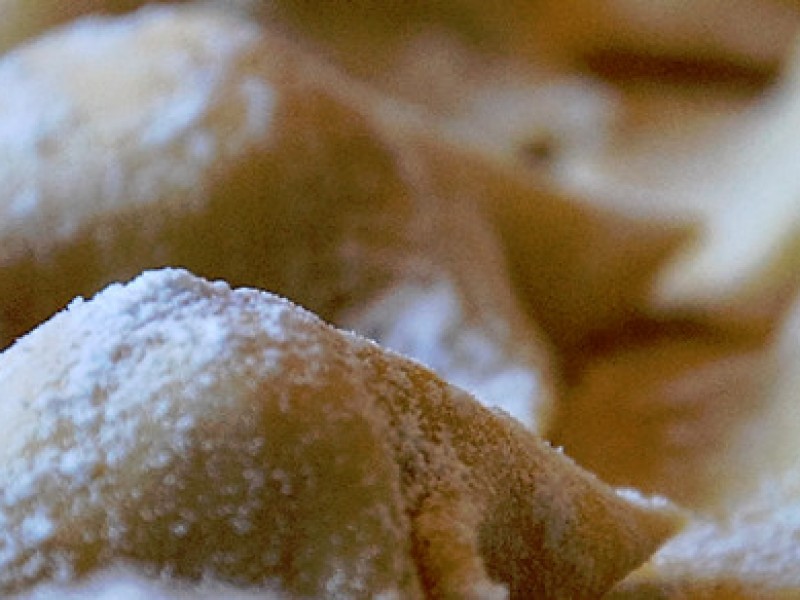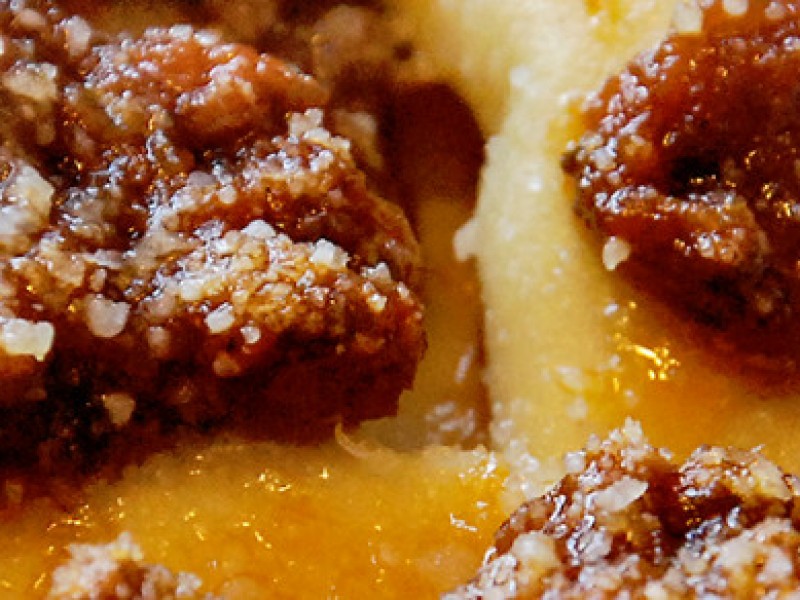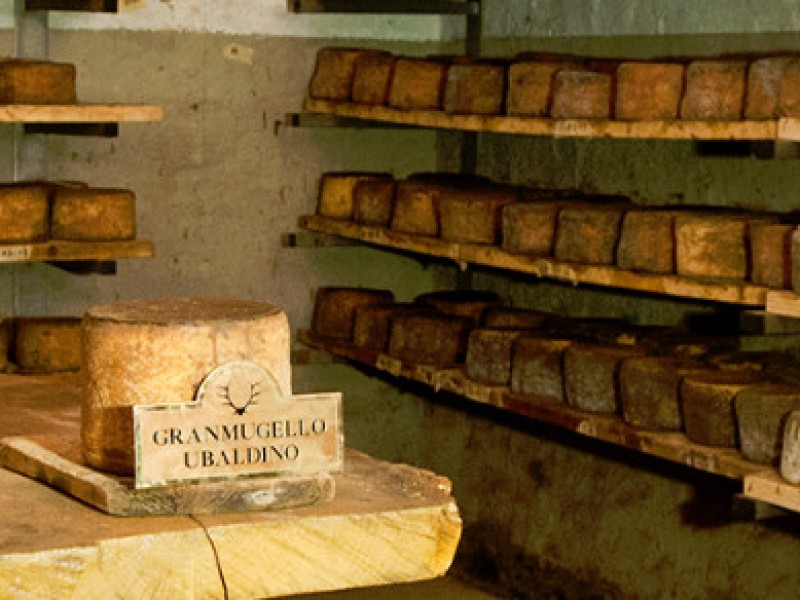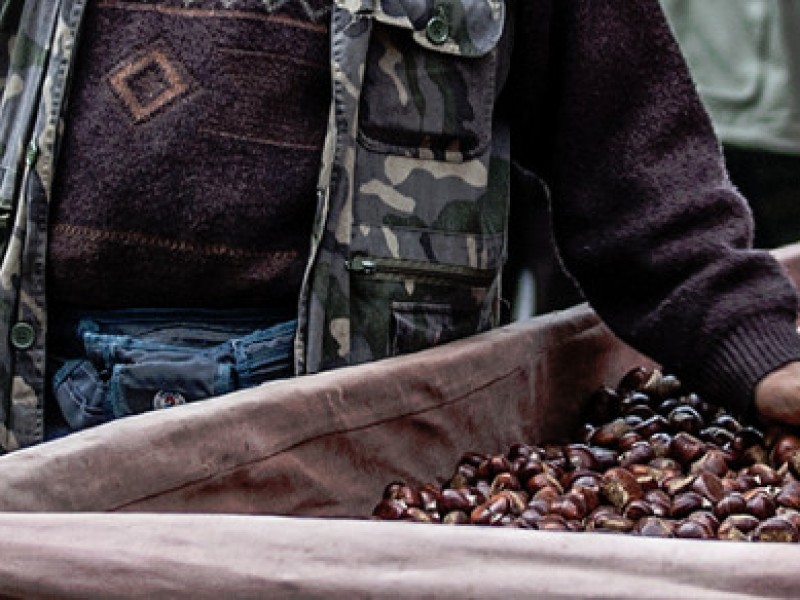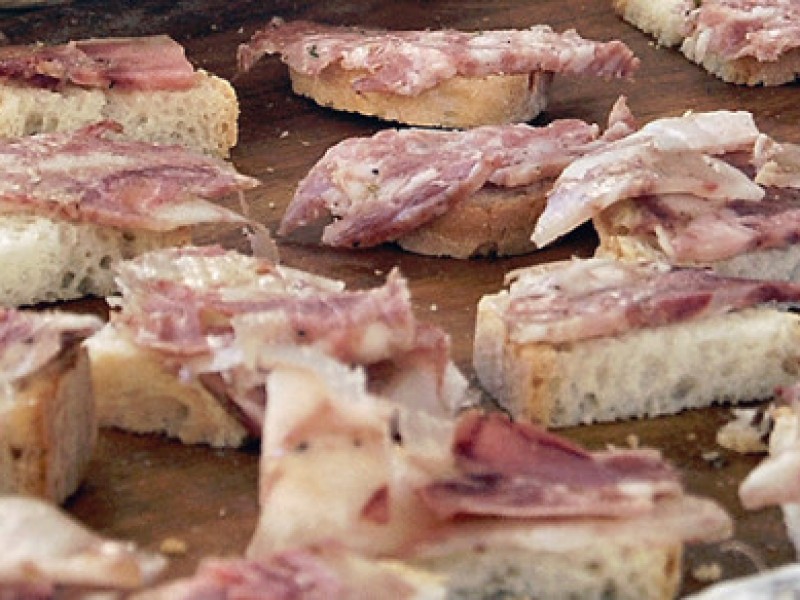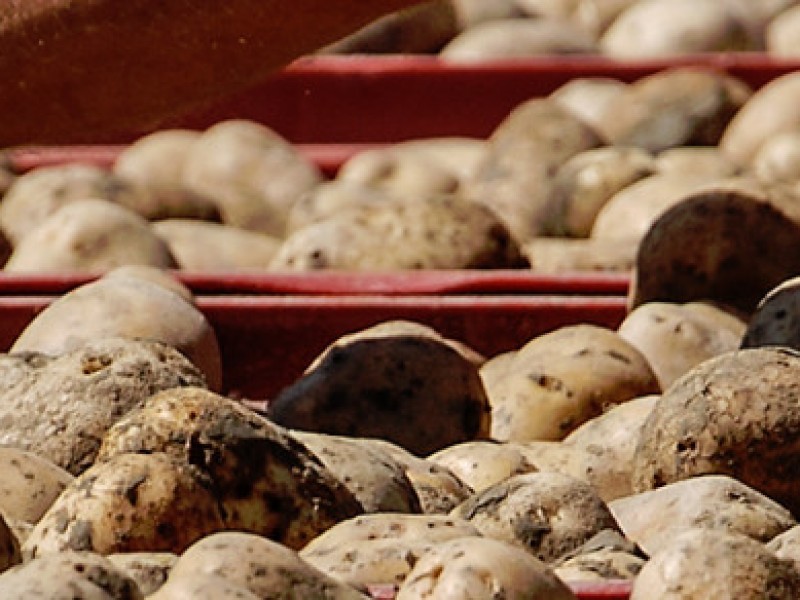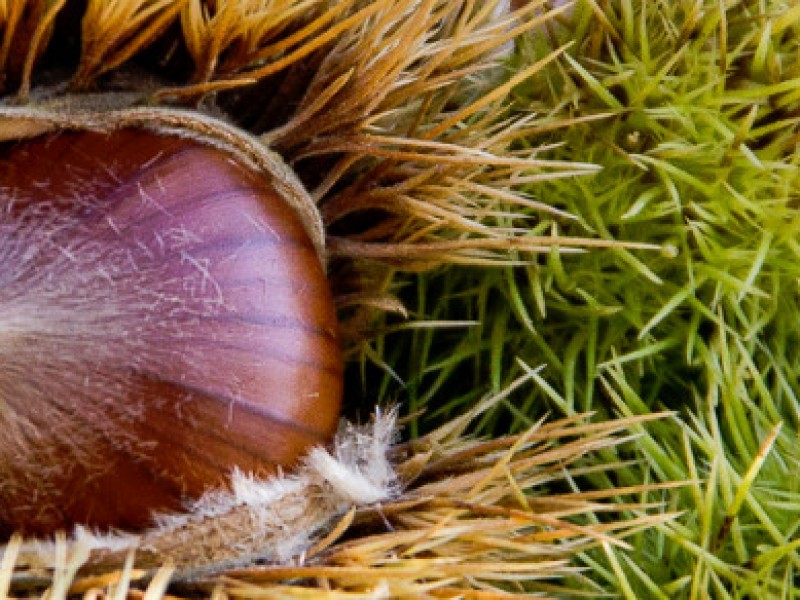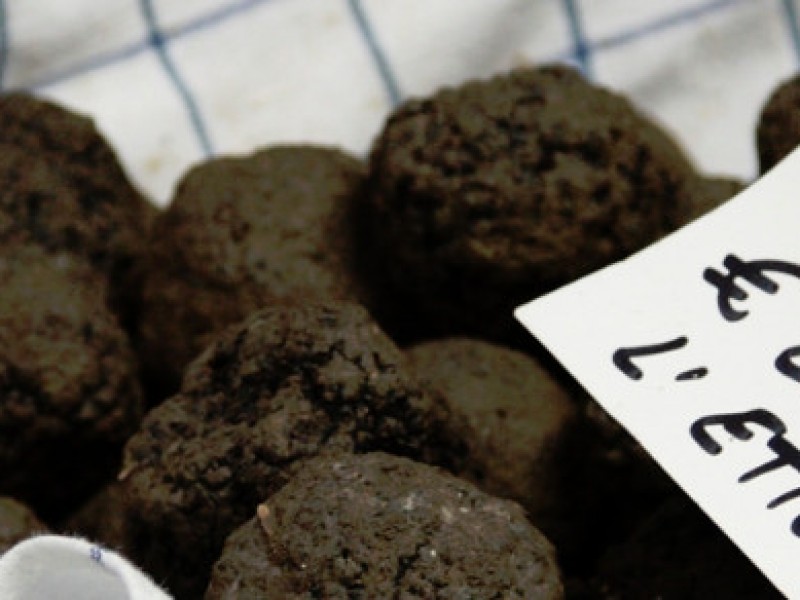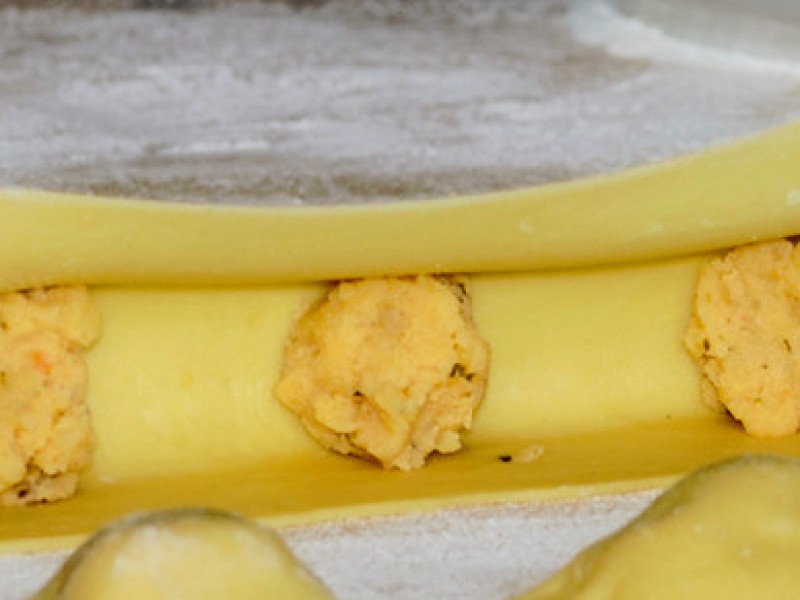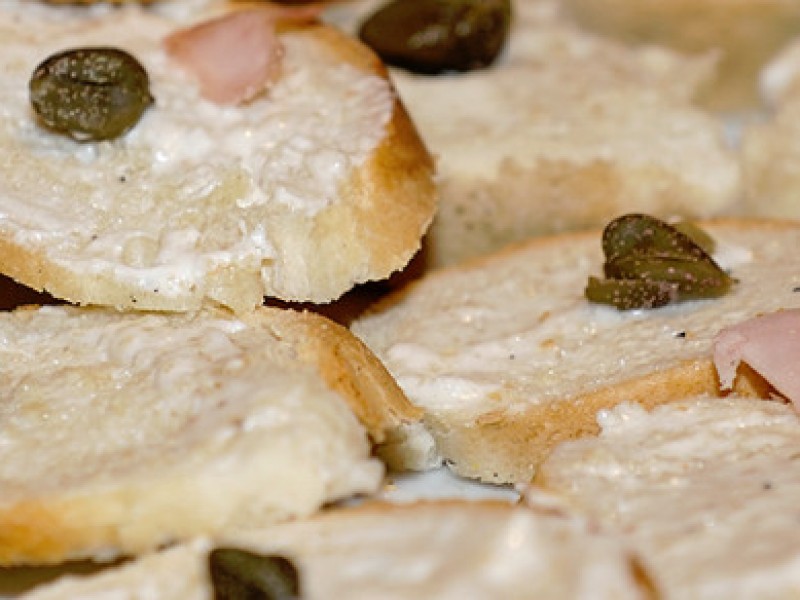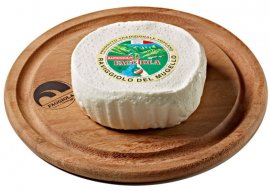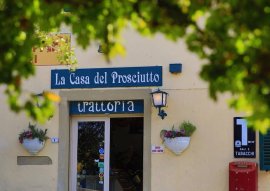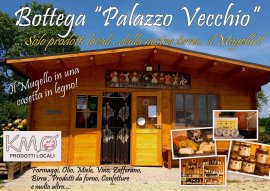The characteristics
This bread is made from Mugello wheat, crushed in flour mills with a stone press, uses natural yeast and is baked in a wood-fired oven. It is typical Tuscan bread, and therefore, made with very little salt, and in the shape of a "filone", loaf, that can weigh from ½ a kilo to 2 kilos by bakers who belong to the Consorzio di tutela e promozione del pane del Mugello (Mugello breadmakers consortium). In fact, the entire bread making process takes place in the Mugello territory.The history
Tuscany is famous for its unsalted bread, which is by and large the most widespread today: it is plain, with a traditional flavour, and baked in conventionally shaped loaves. A loaf of Tuscan bread can come in various forms: the “bozza” is round; the “filone” is oval; and the“ciabatta” is flat.
The loaves are plain with a crunchy exterior and a soft, honey-combed crumb, which comes from leaving the dough to rise for many hours, and long baking times.
Real Tuscan bread needs – given the essence of the ingredients that aim to accentuate the genuine quality – to be baked in wood-fired ovens. Although they are always harder to find, bakeries with wood-fired ovens still exist and from those ovens come incredibly fragrant loaves. So called Tuscan bread is unsalted. This fact is rooted in tradition and a past marked by poverty, but has continued through the centuries because when eating the excellent spicy foods that this land offers, what you really need is a bit of “sciocco” (bland) bread.
Throughout Mugello, Tuscan bread is the most traditionally widespread: this traditional loaf is even produced in the towns of Marradi, Palazzuolo and Firenzuola, which are on the Emiliano-Romagnolo side of the Apennines.
Where and how it is produced
The water mill, Molino Foralossi, in Firenzuola, stone presses the wheat, which is never genetically modified, and grown on farms in Mugello. The flour that derives from this process is rich in wheat germ, fibres, minerals, vitamins and amino acids: all an essential part of a healthy diet.
The Vecchio Forno in Polcanto, the Panifico Faini Firenze in Luco del Mugello and the Forno Conti Giuliano in San Piero a Sieve are home-bakeries that use natural yeast, which is obtained by adding a natural enzyme to the flour and water to produce a smooth, dense dough. It is left to rise for a minimum of 20 hours until the volume has doubled. Bread dough is made by adding water and flour to the natural yeast (100 grams of natural yeast makes 1 kilo of dough). In the final stage of the process, 20% of the dough is added to the flour and water to prepare the mix. It is divided into sections which are left to oxygenate for at least 10 minutes. The dough is then prepared in different sized loaves and left to rise on cloths of natural fibre for 3-4 hours. Once the dough has risen, the loaves are baked in wood-fired ovens, which have been preheated to 200-220°, for 50-70 minutes, depending on the size of the loaf.
Mugello bread remains fresh for at least five days, and when it hardens it is excellent if used to make typical Mugello dishes like the “ribollita”, “panzanella” or “pappa con il pomodoro”.
For information about Mugello bread:
Consorzio di tutela e promozione pane del Mugello
Via O. Bandini, 6 – Borgo San Lorenzo
Tel. 0577 281069 Fax 0577 271281
contatti@panedelmugello.com - www.panedelmugello.com
Phone: +39 055 844031
Website: www.facebook.com/LaCasaDelProsciutto/
Email: lacasadelprosciutto@gmail.com
Phone: + 39 055 8046053
Website: www.faggiola.org
Email: info@faggiola.it
Phone: + 39 055 8402103
Website: www.palagiaccio.com
Email: commercialepalagiaccio@gmail.com
Phone: +39 055 844031
Website: www.facebook.com/LaCasaDelProsciutto/
Email: lacasadelprosciutto@gmail.com
Phone: + 39 055 8490367
Website: www.centrocarnimugello.it
Email: info@centrocarnimugello.it
The Shop is open from Monday to Saturday 8.30am-1pm and 3.30pm-7.30pm, on Sunday 8.30am-12.30am
Phone: + 39 055 0763253
Mobile: +39 333 9978977
Website: www.palazzovecchio.eu
Email: info@palazzovecchio.eu
Phone: + 39 055 8046053
Website: www.faggiola.org
Email: info@faggiola.it
Phone: + 39 055 8402103
Website: www.palagiaccio.com
Email: commercialepalagiaccio@gmail.com













